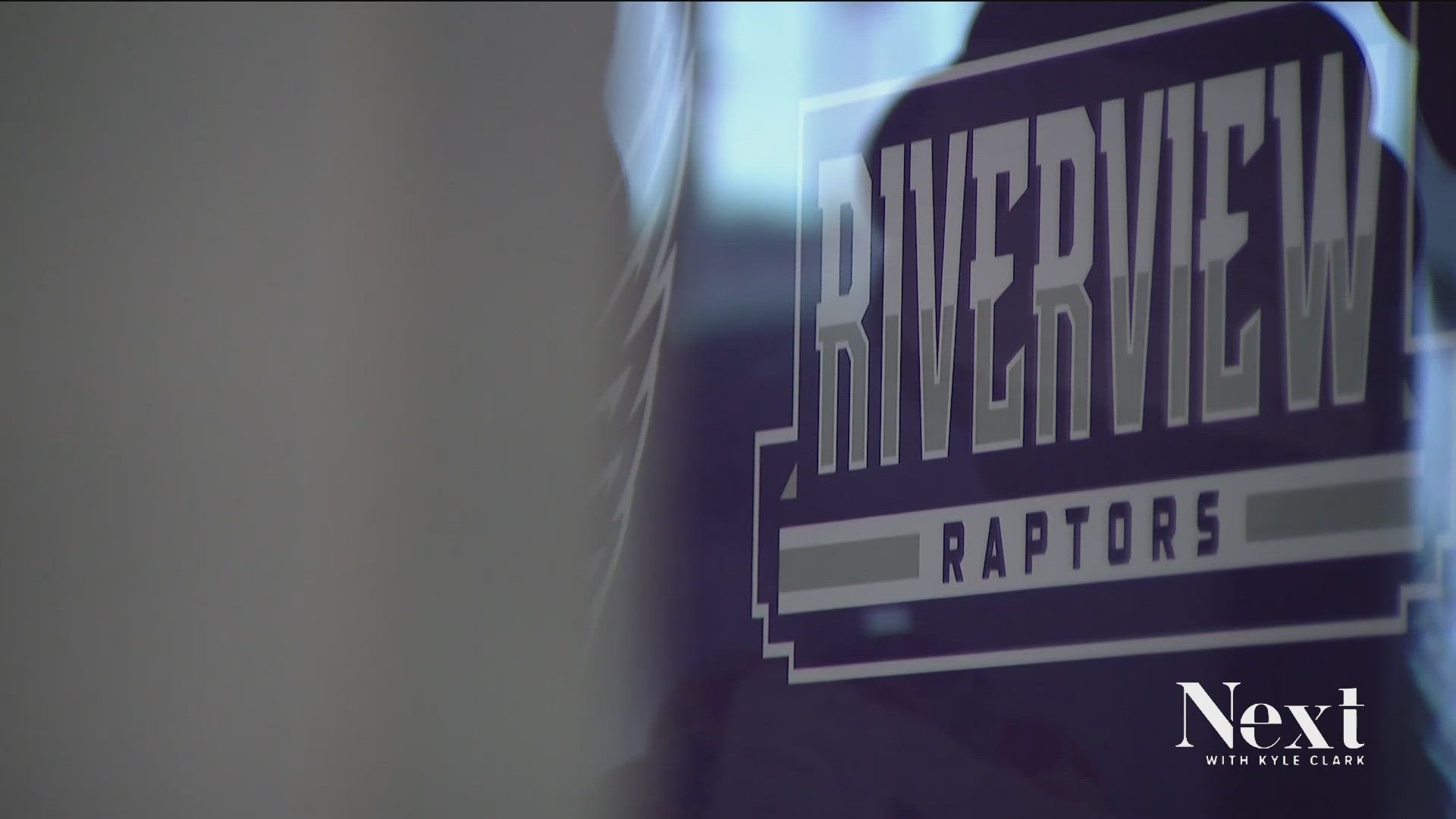JOHNSTOWN, Colo. — Cities around the state have found success sending mental health clinicians to calls with police officers. In northern Colorado, a school district is hoping it can also work inside the classroom.
Thompson School District believes it is the first in Colorado to partner a school resource officer (SRO) with a mental health clinician to respond to calls inside schools.
The program started less than six months ago, and the single team of a clinician and SRO has already responded to nearly 150 calls involving students in crisis or with mental health needs.
"We’re not writing tickets," said Maryann Ramos Flynn, a Licensed Clinical Social Worker with Summit Stone Health Partners. "We’re not taking students to jail. We are getting them connected with services on the spot."
Ramos Flynn is one half of Thompson School District’s new co-responder program. Larimer County Sheriff's Deputy Brendan Solano is the other half.
"We’ve had a bunch of different students struggling with mental health as well. Seeking resources and being able to talk with them, assess them. Kind of see what we can do with our team to help them out," Solano said. "Once people start to understand what our role is in the district and how we can be utilized, our calls have started to pick up. We went from averaging two to three calls a day and now we’re upwards of five contacts in a day between the two of us."
School resource officers with a badge and a gun aren’t always the best equipped to respond to every call. Clinicians are now helping.
"We try and change the language. When people say a cop’s been called on them, it’s usually for a crime," Ramos Flynn said. "Usually, the first thing that we say is 'You got extra support called out for you because someone really cares for you, and a law enforcement officer is here to help support me and to keep everyone safe.'"
Administrators at schools like Riverview PreK-8 School in Johnstown have noticed a change that's been positive.
"When the bell rings at the end of the day and we leave, there’s only so far that the school can reach. This team can reach significantly further and really, genuinely help support families at their core," Riverview Assistant Principal Laurel Syring said.
The co-responder team has the power to put people in mental health holds and refer students to therapy. They can get students mental health help and even follow up outside of the classroom with home visits if necessary. School counselors don't have the power to do that.
"I have to put the caveat in there, as a school district employee, I cannot recommend or suggest this to you. Even though I’m highly encouraging it," Lacee Smith, the counselor at Riverview, said.
The most important thing the administrators at this pre-k through eighth grade school found is that this program is proactive. Instead of a school resource officer responding when something is wrong, the deputy and clinician are involved in kid’s daily lives, even checking up on kids with home visits outside of school. The goal is to get them treatment before it becomes a larger problem.
In less than six months, Syring has seen enough to know the program is a helpful tool to try and help improve school safety and student mental health.
"I would say that districts should try it out, absolutely. Mainly because it’s a proactive approach," she said. "If there was a police officer at the school, we all would’ve wondered why, what was happening. But their presence is so natural and it’s integrated into our system as a whole."
A potential solution to one of our most pressing problems.
"I don’t know if we can say that our program can or can’t prevent anything from happening," Ramos Flynn said. "All I know is what our program is doing now which is connecting students with resources and providing on-site crisis support."
SUGGESTED VIDEOS: Next with Kyle Clark

